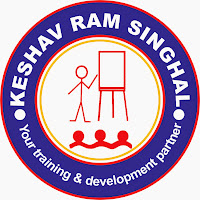The Delphi technique can be used to determine risks. Delphi technique is an information-gathering technique used as a way to reach a consensus of experts on a subject. Experts on the subject participate in this technique anonymously. The Delphi Technique is a method used to estimate the likelihood and outcome of future events. A group of experts exchange views, and each independently gives estimates and assumptions to a coordinator, who reviews the data and thereafter prepares a summary report. The group members discuss and review the summary report, and give updated forecasts to the coordinator, who again reviews the updated data and prepares a second report. This process continues until all participants reach a consensus. This technique can be applied at any stage of the risk determination process or at any phase of a system life cycle, wherever a consensus of views of experts is needed.
The experts at each round have a full record of what forecasts other experts have made, but they do not know who made which forecast. Anonymity allows the experts to express their opinions freely, encourages openness and avoids admitting errors by revising earlier forecasts.
The technique is an iterative process. It first aims to get a broad range of opinions from the group of experts. A group of experts are questioned using a semi-structured questionnaire. The experts do not meet so their opinions are independent. The results of the first round of questions, when summarised, provide the basis for the second round of questions. Results from the second round of questions feed into the third and so on to final round. The aim is to clarify and expand on issues, identify areas of agreement or disagreement and begin to find consensus. Following steps should be undertaken:
- Select a Coordinator.
- Select experts for the group as the technique relies on a panel of experts.
- Define the issue of risk determination to the group members.
- Round one questions - Ask general questions to gain a broad understanding of the experts view. The questions may go out in the form of a questionnaire or survey. Collate and summarise the responses, removing any irrelevant material and looking for common viewpoints.
- Round two questions - Based on the answers to the first questions, the next questions should delve deeper into the risk determination to clarify specific issues. These questions may also go out in the form of a questionnaire or survey. Again, collate and summarise the results, removing any irrelevant material and look for the common ground. We should remember that the exercise is done to build consensus.
- Round three questions - The final questionnaire aims to focus on supporting decision making. Again, collate and summarise the results, removing any irrelevant material and look for the commonly agreed points. You may have more than three rounds of questioning to reach a closer consensus.
- Act on coordinator's findings - After the round of questions, hope that the team experts will have reached a consensus and the coordinator will have a view of future risks and opportunities. Analyse the findings and put plans in place to deal with future risks and opportunities.
Predicting the future is not an exact science, but the Delphi Technique can help in understanding the likelihood of future events and what impact they may have on the process, product and service. Delphi technique is labour intensive and time consuming, so a slow process. Since the opinion in Delphi technique needs to be expressed in writing, the participants need to be able to express themselves clearly in writing.

No comments:
Post a Comment